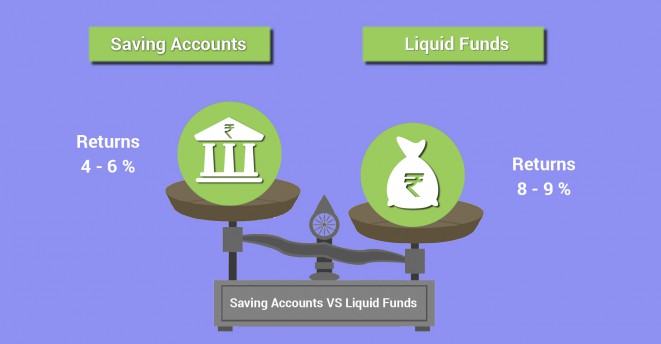
Making your kids financially literate
February 10, 2019What do we do with the surplus of income over expenses i.e our savings. We keep some money for meeting our near term emergencies or commitments like paying our kids’ school fee, a weekend getaway, a family function, etc. and we invest the rest. In this article we will focus on the former viz the money we keep with ourselves. Most people keep this money as hard cash in their homes or deposit the money in their savings bank account. In the financial world, it is practically a sin to keep cash at home, because of two reasons. 1. It is risky, can be lost or stolen and 2. It is not giving any return. Those people who are keeping this money in savings account do offer protection to their money but the return that you get is negligible.
Your money should at least cover the rate of inflation, because Rs. 1 Lac today will not be of as much value a year later. So, if you are looking for safety and similar convenience of withdrawal of your cash but with better returns, then Liquid Funds is your best bet.
What is a Liquid Fund?
A Liquid fund is a category of debt mutual funds, which invests in short term debt securities like certificate of deposits, treasury bills, commercial papers, term deposits, etc. having maturity of up to 91 days.
So if you want to park your extra cash and you need the money soon, say in a week or a month or few months , you don’t have to adjust with the low returns offered by your savings bank account, you can stash the cash in Liquid Funds. You can invest in a liquid fund even for one day.
Savings account balances are huge in case of salaried people whose money keep on accumulating with every salary in their saving accounts.
Let’s take an example of Mr. Ram, who is working in Infosys. Mr Ram gets a salary of Rs 100,000 per month and he is saving Rs 40,000 to Rs. 60,000 a month, which is getting accumulated in his saving account. For simplicity sake, lets assume
- Mr. Ram is saving Rs 50,000 fixed in each month.
- Mr. Ram withdraws Rs 50,000 on the first day of each month and his saving remains in his account for the entire month.
- Semi – Annual Compounding, and we are considering a time period of 6 months, therefore compounding effect is ignored.
At the end of 6 months:
Value of Mr Ram’s money in Savings Account @ 4% interest p.a. = Rs. 303,456
If Mr. Ram moves his savings in a Liquid Fund on the first day of each month
Value of Mr Ram’s money in Liquid Fund @ 8% interest p.a. = Rs. 306,829
Just by moving his money from his saving account to a liquid fund, Mr Ram earns Rs 3,372 extra on the same investment.
Why should you invest in a liquid fund?
- You can easily park your money for short intervals.
- Money kept at home or in savings account is not growing, the returns are lower than the inflation rate in our country. Liquid funds offer higher returns, so that your money is able to catch up with and outperform inflation.
- You can withdraw your investment anytime, without accruing any penalty.
- Since Liquid Funds invest in fixed income securities with short maturities, hence they bear a lower risk.
- No entry and exit loads, hence Liquid Funds are cost efficient for the investor.
- If you do not withdraw your money from Liquid fund for over 3 years, you get the benefit of paying tax @ 20% with indexation. Short term returns are taxed as your saving bank returns.
Now you can earn extra income by moving your money from your cupboards, savings or current accounts into liquid funds. You get better returns and you can withdraw whenever you need.
.


3 Comments
good information
really nice
really nice